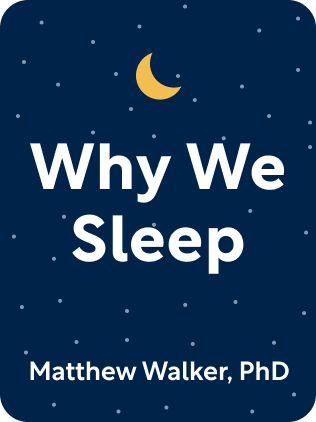

This article is an excerpt from the Shortform summary of "Why We Sleep" by Matthew Walker. Shortform has the world's best summaries of books you should be reading.
Like this article? Sign up for a free trial here .
What’s the connection between Alzheimer’s and sleep? Can bad sleep habits lead to issues later in life?
While it’s not a definitive connection, some theorize that there is a connection between Alzheimer’s and sleep. Since sleep affects the memory, there may be some reason to believe Alzheimer’s and sleep, or lack thereof, are related. Read more below.
Alzheimer’s and Sleep: The Connection to Memory
While no definitive causal link has been shown yet, Alzheimer’s and sleep loss may be connected by the following factors:
- Frontal lobe degeneration (especially through Alzheimer’s characteristic amyloid plaques) disrupts NREM sleep.
- Lack of NREM sleep disrupts memory formation, a key symptom of Alzheimer’s.
- (Notably, the hippocampus is not affected by amyloid plaques, presenting a conundrum to scientists on why memory is disrupted in Alzheimer’s.)
- Lack of NREM sleep disrupts the lymphatic cleanup system, during which glia shrink to less than half their normal size and amyloid plaques are cleared out more readily.
It’s easy to see how a vicious cycle can occur – frontal lobe degeneration disrupts NREM sleep, which causes further frontal lobe degeneration. The Alzheimer’s-sleep connection is easy to picture.
Alzheimer’s and sleep loss aren’t so simple. Sleep loss may precede Alzheimer’s by several years, suggesting this could be an early diagnostic.
Encouraging NREM sleep, through artificial brain stimulation if needed, might be therapeutic for Alzheimer’s. It could also be prophylactic, the same way statins protect against heart disease.
Aging
Alzheimer’s sleep loss may be due to aging. Telomeres are a component of DNA, and they get shorter with aging. Sleep deprivation has been shown to hasten telomere shortening, thus implying an increasing in aging.
(Shortform note: why would animals evolve so that sleep deprivation causes all these bad issues? Evolutionarily, consider that these responses might promote survival: in caveman days, times of low sleep may mean conditions that threaten survival (low food stores, tough weather, hostility with another tribe). The above responses might promote short-term survival – hoarding calories, activating the “fight-or-flight” system, decreasing reproduction – at the expense of long-term well-being.)
Adulthood/Old Age
Sleep quality starts deteriorating in the late 20s, with deep NREM sleep becoming impaired in length and power. In your late 40s, you’ll have lost 70% of deep sleep as a teenager; by 70, you’ll have lost 90% of deep sleep. Unfortunately, less NREM sleep worsens the ability to cement new memories in older people, contributing to the connection between Alzheimer’s and sleep.
You often hear of the elderly sleeping little at night, so the natural conclusion is that the elderly just need less sleep. But this could be a myth. The elderly might be sleeping less because they’re unable to sleep for as long. This means they could still benefit from more sleep.
Seniors have three things going against them: 1) they sleep less, 2) they have less efficient sleep, and 3) they want to sleep earlier. This is caused by:
- Degeneration of the mid-frontal cortex that generates sleep
- Circadian rhythm shifting to earlier times
- Weakened bladders causing night interruptions
Exacerbating this are:
- We’re generally unable to determine our sleep quality after sleeping. So when seniors sleep poorly and feel unhealthy, they don’t realize they need to improve their sleep quality. They chalk it up to insomnia.
- Because the elderly sleep poorly, they feel tired during the day, and doze off in the early evening. Unfortunately, this reduces the adenosine sleep pressure at night, which causes them to have trouble falling asleep later. Then, their early circadian rhythm wakes them up before they can get a full night’s rest. This causes a vicious cycle of poor sleep.
All this causes lower sleep efficiency – people in their 70s have 80% sleep efficiency, meaning they stay awake in bed for 1.5 hours when trying to sleep 8. Alzheimer’s sleep can be difficult to evaluate.
There are a few ways to get around this:
- Melatonin helps strengthen the desire to sleep in elderly people. It reduces time to falling asleep and improves reported sleep quality.
- Seniors who want to push their circadian rhythm back should get bright-light exposure in the late afternoon, not in the mornings.
So are Alzheimer’s and sleep connected? While scientists are unsure, there may be some relationship between Alzheimer’s and sleep.

———End of Preview———
Like what you just read? Read the rest of the world's best summary of Matthew Walker's "Why We Sleep" at Shortform .
Here's what you'll find in our full Why We Sleep summary :
- Why you need way more sleep than you're currently getting
- How your brain rejuvenates itself during sleep, and why nothing can substitute for sleep
- The 11-item checklist to get more restful sleep today





